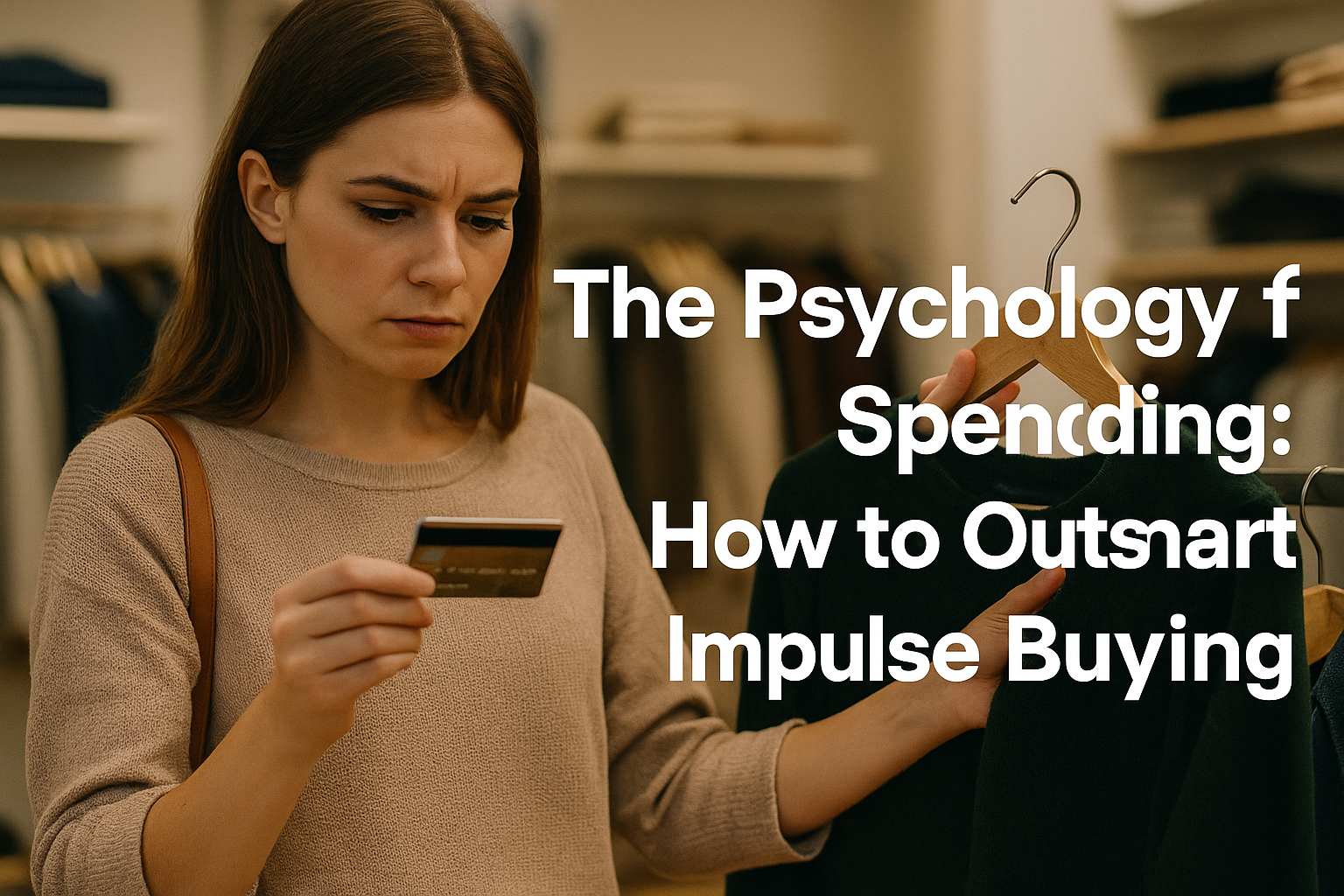Understanding the Emotional Triggers Behind Spending
Impulse buying is more than a bad habit—it’s a psychological reaction. Often, purchases are driven by emotion, not logic. You might buy something to feel happy, reduce stress, or even reward yourself after a tough day.
Recognizing the emotional triggers behind your spending is the first step toward taking control. Ask yourself:
- Do I shop when I’m bored?
- Do I spend more when I’m stressed or anxious?
- Do I buy things to impress others?
Once you know your triggers, you can create strategies to manage them.
The Role of Dopamine in Shopping
Every time you make a purchase, your brain releases dopamine—a chemical linked to pleasure and reward. It’s the same rush you get from eating chocolate or getting a compliment.
Online shopping increases this effect because of the excitement of waiting for the item to arrive. This anticipation keeps the dopamine flowing for days.
Knowing this helps you understand why shopping feels addictive, and why stopping requires more than just willpower.
Create a 48-Hour Rule
One of the most effective strategies to stop impulse buying is to implement a waiting period. The 48-hour rule works like this:
- Whenever you want to make an unplanned purchase, pause.
- Add the item to a list or screenshot it.
- Wait 48 hours.
- If you still want it and can afford it without hurting your budget, go ahead.
More often than not, the urge will pass, and you’ll save money without feeling deprived.
Unsubscribe From Temptation
Retailers want your attention. They send emails, notifications, and promotions to create urgency. That’s why unsubscribing from retail mailing lists and turning off push notifications is powerful.
Fewer reminders mean fewer temptations. And when you do want to buy something, you can do it on your own terms—not because of a flash sale.
Replace the Habit With a Healthier One
Impulse buying often fills an emotional need. Try replacing the spending trigger with something else that brings comfort or pleasure:
- Take a walk
- Meditate
- Listen to music
- Call a friend
- Journal your thoughts
Over time, your brain will associate relief with these positive habits instead of shopping.
Set Financial Goals With a Purpose
Spending without direction feels good in the moment. Saving with purpose feels good long-term. When you have specific goals—like a trip, emergency fund, or paying off debt—it’s easier to resist short-term temptations.
Visual reminders can help. Put a picture of your goal on your phone lock screen, your mirror, or in your wallet.
Avoid Shopping When You’re Vulnerable
You’re more likely to make poor spending decisions when you’re:
- Tired
- Hungry
- Stressed
- Lonely
- Bored
Avoid shopping—especially online—during these emotional states. Wait until you’re clear-headed and focused before making financial decisions.
Use a Budget for Discretionary Spending
You don’t have to stop buying things you enjoy. Instead, assign yourself a monthly allowance for non-essential purchases—things like clothes, gadgets, or entertainment.
Knowing you have a set limit helps you:
- Spend guilt-free within the boundary
- Be more intentional about what you choose
- Avoid overspending
It gives you freedom and discipline at the same time.
Use Cash or a Prepaid Card
Using cash or a prepaid card can limit impulse spending. Psychologically, it’s harder to hand over physical money than to swipe a card or click “Buy Now.”
Try this method for discretionary categories like dining out or shopping. Once the cash is gone, you stop spending.
Track Your Triggers
Keep a simple log of your impulse buys. Include:
- What you bought
- What you were feeling at the time
- Why you wanted it
- How you felt afterward
This can reveal patterns you weren’t aware of and help you develop smarter responses in the future.
Final Thoughts: Win the Battle Between Mind and Money
Impulse buying is rooted in emotion, not logic. But with awareness and simple strategies, you can shift your habits and regain control.
Train yourself to pause, plan, and prioritize your true financial goals. Over time, resisting impulse buys becomes easier—and far more rewarding than any short-lived shopping thrill.
